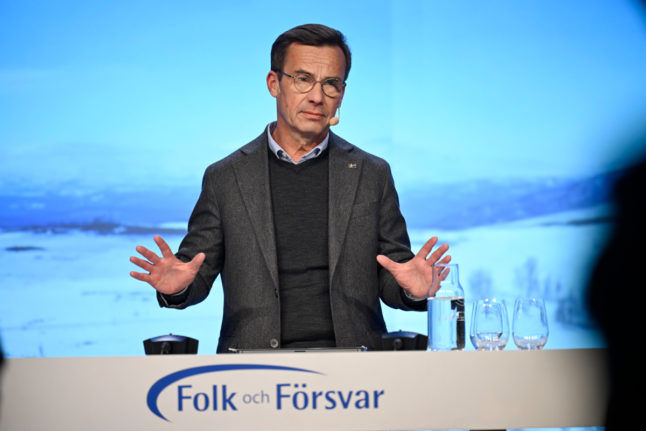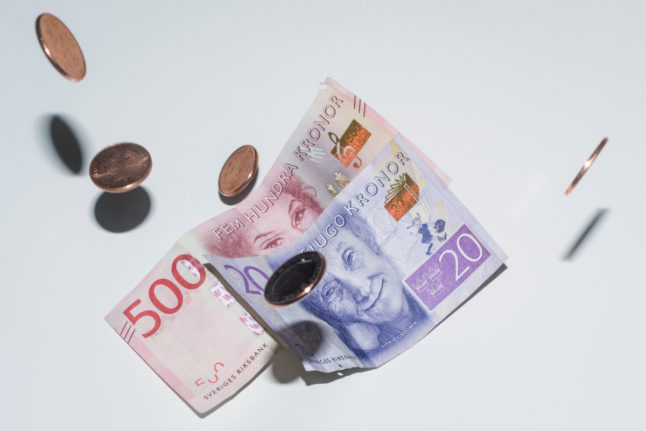Swedish ministers and military officials sparked a stir the other week when they, in speeches at an annual defence conference, warned of the theoretical prospect of war, urging Swedes to “prepare”.
Prime Minister Ulf Kristersson in his own speech urged people to consider “the expectations that come with Swedish citizenship”, ultimately “defending Sweden” with “our lives on the line”.
Children’s charity Bris reported an increased number of calls from concerned children following the statements, and shops noted an uptick in sales of kit such as emergency radios and water jugs.
But in an interview with public radio broadcaster SR’s morning show on Tuesday, Kristersson, leader of the conservative Moderate Party, said he was not worried about the threat of imminent war.
“I’m not worried, but we are preparing. There’s nothing that suggests that war is on our doorstep right now, but it’s perfectly obvious that the risk of war in our part of the world has increased significantly,” he said, highlighting Russia’s full-scale invasion of Ukraine as an example.
Kristersson said that he found the reactions to the government’s and armed forces’ warnings of war “exaggerated”, adding that it felt like “you can’t mention several different nuances at the same time”.
“There is no ambition to scare or cause anxiety in any way,” he said.



 Please whitelist us to continue reading.
Please whitelist us to continue reading.
Member comments